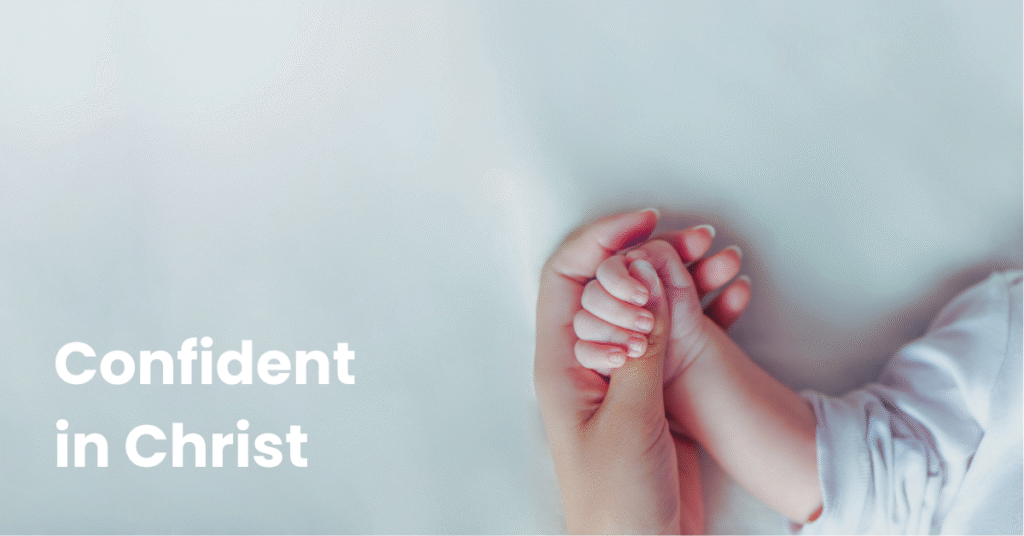Written by Jolene Chong
As an autism therapist (writer’s note: now former therapist, in 2025), working with my clients has taught me a lot of valuable lessons, especially the younger children. Most experiences with them are exciting, loud, and cheerful (unsurprisingly!), but for this article, I chose instead to share a quiet, heartfelt moment that serves as a vivid reminder in my spiritual life.
One particular kid had started attending a class, with me as his shadow. I was so excited for him to interact with more peers; he, however, was on an emotional roller-coaster.
On the first day, as he came to the front door, he froze like a deer in headlights. I smiled at him, and prompted him to bid his parent farewell until the end of the class.
As someone with her own heightened doubts and anxieties, I understood how hard this must be for him. One method I practice during my sessions is to picture what my kids go through, from their perspective. For instance, it might look something like this for my kid at the front door:
***
Imagine that you are young. And quite small.
Imagine that you hate crowds, and even though you want to play with kids your age so badly, you’re terrified and unsure of how to interact with them. These skills were not inbuilt into you, and hard to attain. Reading facial cues, general kid talk, initiating games…it’s all like blurry text through a rain-covered window: smudgy and difficult to read.
Imagine all the noise too, which doesn’t help. Many things are already a sensory overload to you, ranging from uncomfortable to intolerable. Regulating your own emotions is naturally difficult, so you may not even understand what is going on within yourself.
Now, imagine that you have to jump into a situation combining all of the above.
What would you want?
***
For my kid (and I imagine any of us in that situation), I think he wanted to not feel helpless, or like he was doing it all alone.
He peered in, and suddenly, I felt his hand reach for mine. It’s small, but the hand grips mine very tightly. He looks at me, and I encouragingly say “Come on, let’s go in!”
Then he takes a breath, and…
…in he walks. He proceeds to slowly, but bravely, enjoy the class and being with new friends. A real triumph for this child.
I was able to tell him multiple times that day how proud I was of him. But it was impossible to express to him how much that one moment has taught me, and stayed with me.
This must be what Jesus meant, when he stated in Matthew 18:3: “Assuredly, I say to you, unless you are converted and become as little children, you will by no means enter the kingdom of heaven.” In past years, I found this verse hard to understand. Be a child? I was so immature and ignorant when I was young! Why would God want me to be like that?
But that day, I understood. I saw what pure, childlike trust was like. I saw confidence gained not from the self, but in placing it beyond the self. There was also this clear absence of cynicism, which grown ups often pick up along the way as a defense mechanism against this world.
That boy was willing to face what scared him, despite his own reservations, because he placed his trust in someone he relied on. For us as Christians, that faith should undoubtedly always be placed in Christ. The book of 2 Corinthians 3:2-4, which the title of this article is inspired from, reads:
2 You are our epistle written in our hearts, known and read by all men; 3 clearly you are an epistle of Christ, ministered by us, written not with ink but by the Spirit of the living God, not on tablets of stone but on tablets of flesh, that is, of the heart. 4 And we have such trust through Christ toward God.
It is an encouraging passage to read, especially at times where the act of placing full trust in Christ feels hard to do. Having confidence in Christ is to be able to remember, at all times, how powerful and purposeful He is. To know that He will guide us through our trials, or make us stronger from them. We gain courage from His word and His love, holding fast with all our might against the waves of disappointment and pain.
And it is not a one-sided relationship; from the passage above, Paul write about God’s confidence in His children, so much so that our hearts have become His letters of declaration, His poetry known by all, complex means of expressing His magnificence.
If we are to make it through this earthly life in pursuit of our eternal crown, we must realistically embrace that it may sometimes be stormy. We may falter (a lot). We will be afraid, many times over.
But we can always try to move forward. By first holding God’s hand, as tightly as a nervous child, and looking to Him as we step into the unknown.

